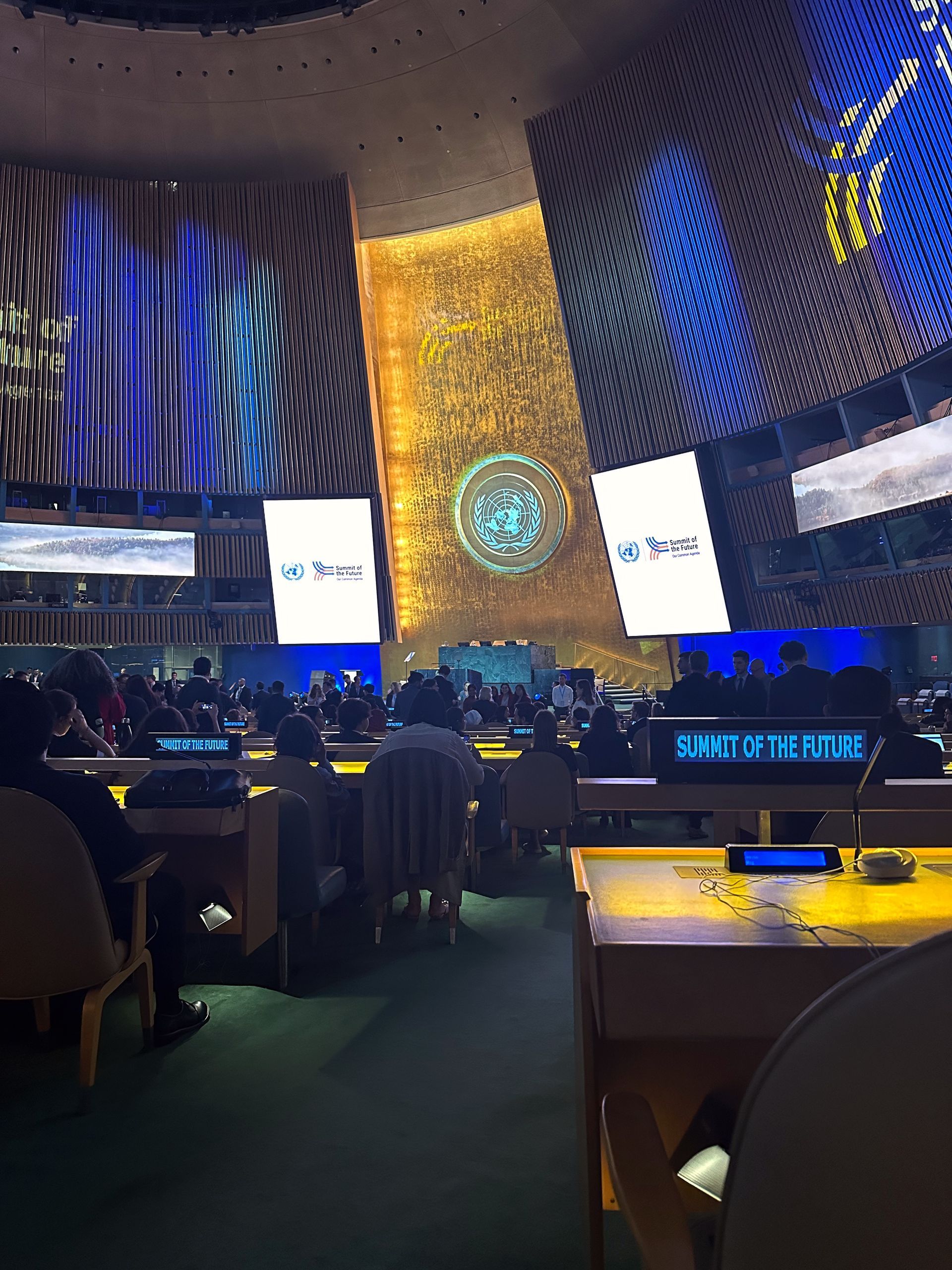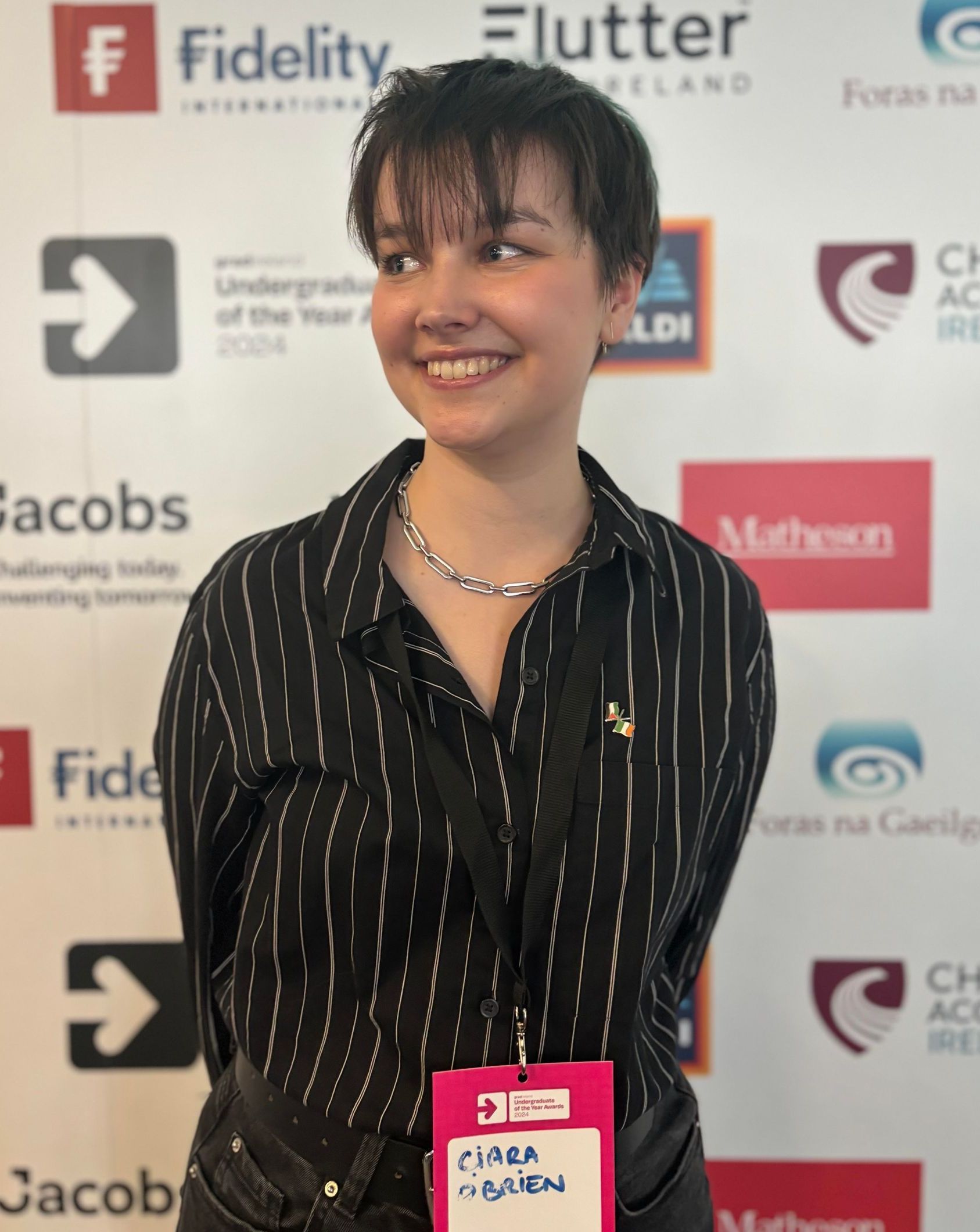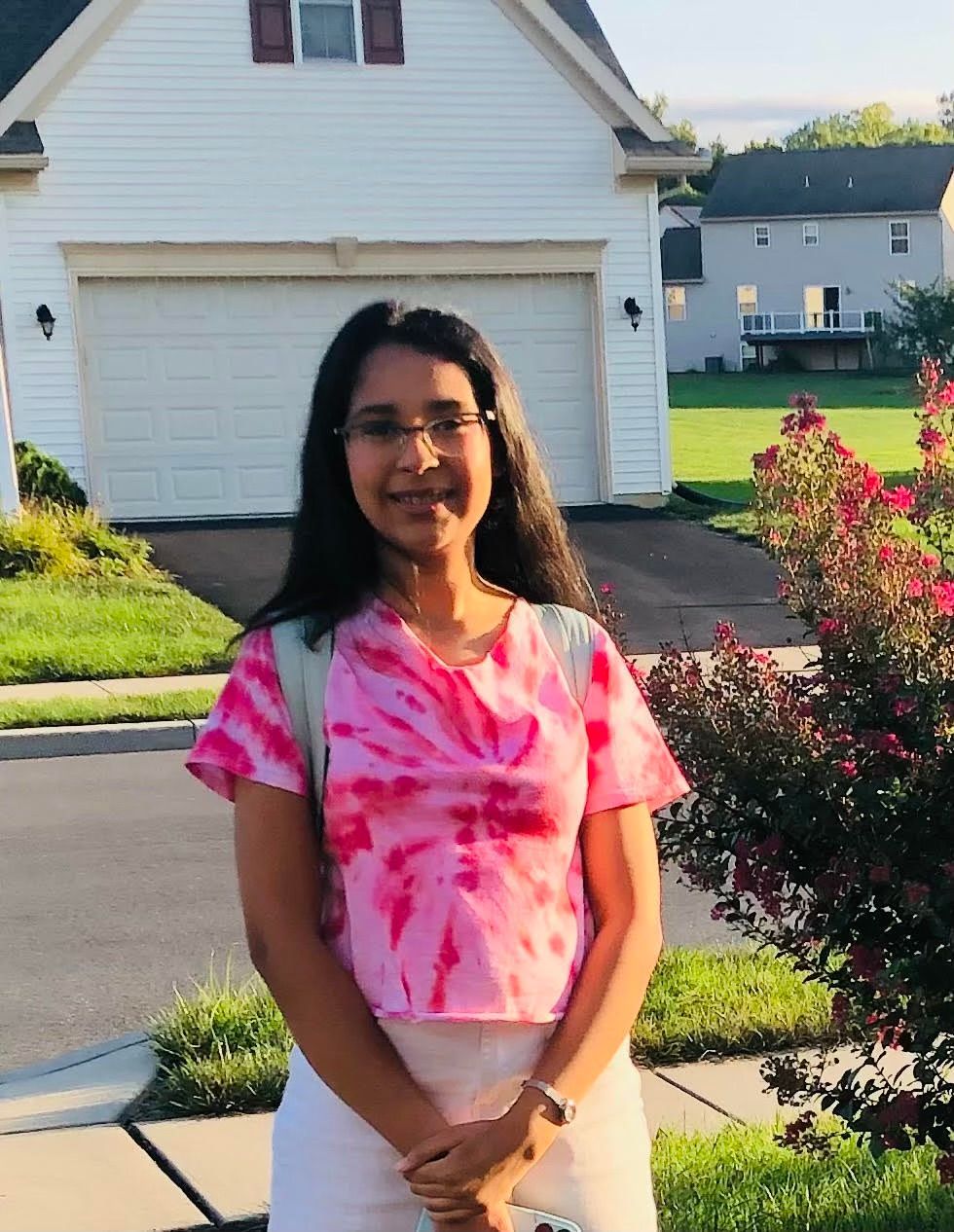News

December 15, 2024
ChallengeUS' co-founder, Brandon Tran, was recognized as one of 10 Youth Civic Solutions Prize awardees at the National Conference on Citizenship this past week in Washington D.C. The award, and its accompanying $1,000 grant, was administered by the Institute for Citizens and Scholars with funding from the William and Flora Hewlett Foundation. Centered around the the theme of "Renewing Civic Health," this year's National Conference on Citizenship attracted hundreds of leaders from around the country representing dozens of industries — politics, tech, local and national media, education, nonprofits, federal government, advocacy, academia, philanthropy, consulting, and more. Some notable speakers and guests included former Democratic Congresswoman Rep. Val Demmings, former Republican Congressman Rep. Rodney Davis, and Michael Smith (CEO of AmeriCorps). Taking place at the Planet Word Museum, the conference featured a full day of panels, lectures, film screenings, networking events, award ceremonies and workshops — including one led by Brandon and the other student winners. One particular discussion that stood out to Brandon was the one between Katherine Maher, the CEO of NPR, and Sam Feist, the CEO of C-SPAN, on the role of media in a societal landscape that increasingly faces distrust from the public, the viral nature of social media, and the dissemination of misinformation. In his words, "This was really the first time I had the direct opportunity to hear from the leaders and stewards of our media institutions what they think of their own industry. People like Katherine Maher and Andrew Feist are decision-makers in their space, not the usual opinion-makers we hear from, and that vantage point was fascinating. Again, these weren't pundits and personalities. These were the executives behind the pundits and personalities." That panel was just one of many moments at the conference aimed at "renewing civic health" in the United States. The day culminated with an award ceremony, where winners of the Institute for Citizens & Scholars' Youth Civic Solutions Prize were recognized alongside leaders like Miami-Dade County Mayor Daniella Levine Cava and Maryland Governor Wes Moore, who was unable to attend but accepted the award with a video recording. With the momentum and support following this opportunity, we at ChallengeUS are perfectly positioned to successfully execute our upcoming Winter competition cycle. We're also excited at the prospect of continued partnership with the Institute for Citizens & Scholars as well as all the incredible connections we made the conference.

By ChallengeUS
•
October 26, 2024
The profound declaration that “young voices often fill rooms but fall on deaf ears” resounded across the United Nations (UN) General Assembly Hall at the Summit of the Future Action Days. Two of our team members, Brandon Tran (CEO and Co-Founder) and Lauren Thomas (Director of Development) had the remarkable opportunity to hear these words in person at the UN. The idea behind the quote was truly a pervasive theme of the weekend as the UN geared up for the Summit of the Future. Youth stakeholders and experts alike touched on the necessity of incorporating youth voices into political spheres internationally over two full days packed with events, panels, presentations, celebration, and more. The necessity and importance of incorporating youth minds in traditionally non-youth spheres is a core principle upon which ChallengeUS was founded. We believe that it is necessary to engage and elevate student voices on critical issues. As Josefa Tauil, a representative of the Secretary General’s Youth Advisory Group, emphasized in her speech during the “Conversation with the Secretary-General” event, Article 1 of the Human Rights Declaration provides evidence for no hesitation on the inclusion of youth in international political spaces. Thus, the youth have a human right to political inclusion, especially in political conversations that impact their future such as climate change. Conversations that include the youth, Tauil noted, are needed to end social isolation and inform the global environment on the essential needs of the present and future. These core principles on youth incorporation was the basis of numerous roundtable talks throughout the two days that ranged from climate equity to gender equality. During a conversation relating to climate equity, Paulo Bacca, the Deputy Director of Dejusticia, stressed the transformative change youth are capable of bringing about. Bacca has seen this change first-hand when his organization aided Columbian youth in winning their case against the Columbian government for deforestation. A panel on sustainability followed Bacca’s conversation on equity as generational equity and the importance of investing in the world’s children were highlighted. As many speakers at the Action Days acknowledged, including Bacca and the panel on sustainability, today’s youth will inherit the consequences of current actions and therefore should have their perspectives considered in decision-making. ChallengeUS strongly agrees with this shared belief in the importance of activating and elevating student voices on critical global challenges—climate change, poverty, war, inequality, and so on. UN Secretary-General António Guterres went even further during the Opening Ceremony, advocating not only for youth consultation but also “moments of active intervention from young people.” And these moments of active intervention, the Secretary-General stressed, need to be systemic and genuine, not tokenistic. Overall, it was clear the thought leaders there felt that for governments to properly address the needs of the people, youth voices must be heard. And not just heard, but listened to and understood. The youth are the future, and as such, must have a seat at the table in conversations relating to the future. Otherwise, intergenerational conversations will not be achieved and solutions to global challenges will lack key insights from the most innovative cohort of the global population.

By ChallengeUS
•
October 2, 2024
“I like to say that sociology teaches me what I want to fix, and economics teaches me how to fix it,” explained Ciara O’Brien, a 2nd year at Trinity College Dublin. O’Brien is a 19-year-old Political Science, Philosophy, Economics, and Sociology student at Trinity from West Dublin, Ireland. A youth social activist with an undercurrent of practicality, O’Brien has been indirectly engaged with political action since her time at a convent school where she fought to change the dress code to allow women to wear trousers. The scope of her activism ranges from discussing Irish compliance with the United Nations Convention to teaching English to refugees. While her time around institutions like the UN provides a significant networking opportunity, she says that “the impact that is made is negligible” compared to the more hands-on, personal opportunity to work with refugees, where she feels she “makes much more of an impact, just in terms of their day to day.” Her time working with refugees has taught her a valuable lesson in the quest for firsthand communication in understanding and addressing the needs of different communities. “For me, it would be talking to people rather than talking about them.” This lesson, O’Brien notes, is lost among some policymakers and activists as they tend to generalize what people need. O’Brien further observes political leaders’ tendency to generalize from her work with the United Nations, where she has noticed a growing disconnect between the older generation of policymakers and the rapidly evolving needs of younger generations. “It’s impossible for older adults to understand youth’s interest without speaking to youth… If you’re making policies for young people, you have to speak to young people, because otherwise, what?” O’Brien boldly declares her strong belief in the importance and necessity of youth voices being heard by those in power, especially when they are “making policies that would affect us for the next 60 years.” When the adults take the time to understand young people, she explained, they inevitably discover what young people find important. Specifically, when it comes to approaching policy issues and activism, O’Brien feels that “for the most part, we all understand there is this set of problems, and we just disagree on how to fix them.” In her opinion, the real challenge is in figuring out how to order these problems. The youth, acting as a fresh set of eyes, aid in the ordering of such issues. Building upon the power of the youth’s fresh creativity, she also promotes the value in reflection. “Reflection is the only way to make things better. Otherwise, we just keep repeating the same things.” For O’Brien, reflection is not about rethinking a big decision but rather understanding that what one did may not have been optimal and pledging to do a little bit better the next time, thereby leading to progressive improvement over time, especially if one is young. When asked to reflect on her own experiences to offer advice to her peers, O’Brien showcases her pragmatism again by taking the time to differentiate her advice based on whether or not someone has a lot of time on their hands. For those who are busy, O’Brien recommends spending “the time in your head consciously,” making it more reflective, and less chaotic in order to proactively “[choose] how to spend your thoughts.” For those with time on their hands, she encourages spending more time on “something a little bit more inspiring” to boost one’s self-worth. Ultimately, and as evident in her 1st place speech, O’Brien urges the youth to stay curious, ask questions, experience new things, and, above all, make their voices heard. Listen to her 1st-place speech here.

By ChallengeUS
•
October 2, 2024
“Your voice does matter,” proclaims Laghima Pal, a Senior at Cumberland Valley High School in South Central Pennsylvania. An active member of her community, Pal strongly believes in the lasting impact youth can have on their communities. From participating in local events such as trash cleanups to serving on her high school’s student council, Pal has experienced firsthand young people’s capacity for positive impact on those around them, when given the platform to do so. In addition to large-scale ideas and solutions, Pal champions the necessity of local efforts because these efforts can also “have such a meaningful impact on others.” Simply helping someone out in your day-to-day life, Pal believes, is just as important as speaking to members of Congress or helping pass legislation. Unfortunately, as Pal notes, the platforms available for youth to make an impact are scarce, especially in suburban areas such as her hometown. She argues that in order to create innovative policy solutions that push society forward to the future, student voices and their unique perspectives deserve to be better platformed and elevated. Increased opportunities for youth engagement not only benefit policy but also, as she highlights, dramatically “increase the youth’s confidence and comfort regarding the future.” If the youth are going to be tasked with leading the future, then they must have the ability to influence the future. As an individual passionate about environmental studies and climate change, specifically, Pal affirms the sentiment that the leaders of tomorrow need to have a say in tomorrow. Sustainability and environmental issues are topics of ever-increasing importance as climate change continues to impact millions, and yet, she feels the generation that climate change will impact the hardest is often left out of the conversation. These issues have led Pal to develop a passion for creating pathways for young people to get involved in crafting climate change solutions and generating sustainable action. In college, she hopes to continue her climate change advocacy work while studying political science, economics, and/or environmental studies with the goal of creating lasting change for those around her in her future career. Pal’s passion for advocacy work originates from her belief in the importance of speaking out on issues she is passionate about. For her, speaking one’s mind is amongst the most beneficial things one can do for oneself. Characterizing herself as a shy person growing up, Pal admits she did not always feel comfortable doing so. However, with the help of mentors, such as the Editorial Director of her local newspaper, she was able to learn how to stand up for herself and her passions. Driven by her personal experience, Pal advises youth to have mentors in their corner to help guide them and show them how to create platforms for themself. When asked to offer further advice to her peers, Pal asserted the importance of being confident. While she notes that it is not necessary to be outspoken or extroverted, it is important to be confident in who you are, what you have to say, and what you want to do. While it may not always seem like one’s voice has an impact, Pal stresses that people greatly value others’ thoughts and opinions. Simply said, your voice is the most important tool you have and you should always, as Laghima Pal urges, try to get it out as much as possible. Read her 1st-place essay here.
Join our Mailing List!
Thank you for contacting us.
We will get back to you as soon as possible.
Oops, there was an error sending your message.
Please try again later.
© 2024 All Rights Reserved | ChallengeUS

